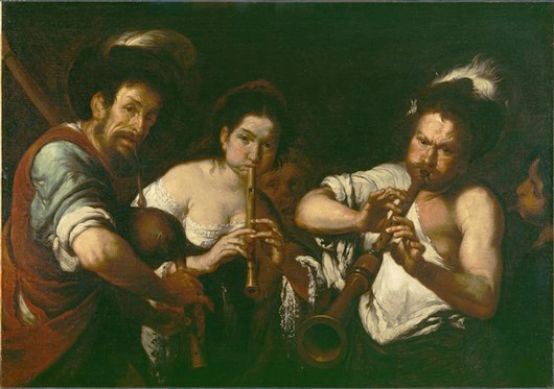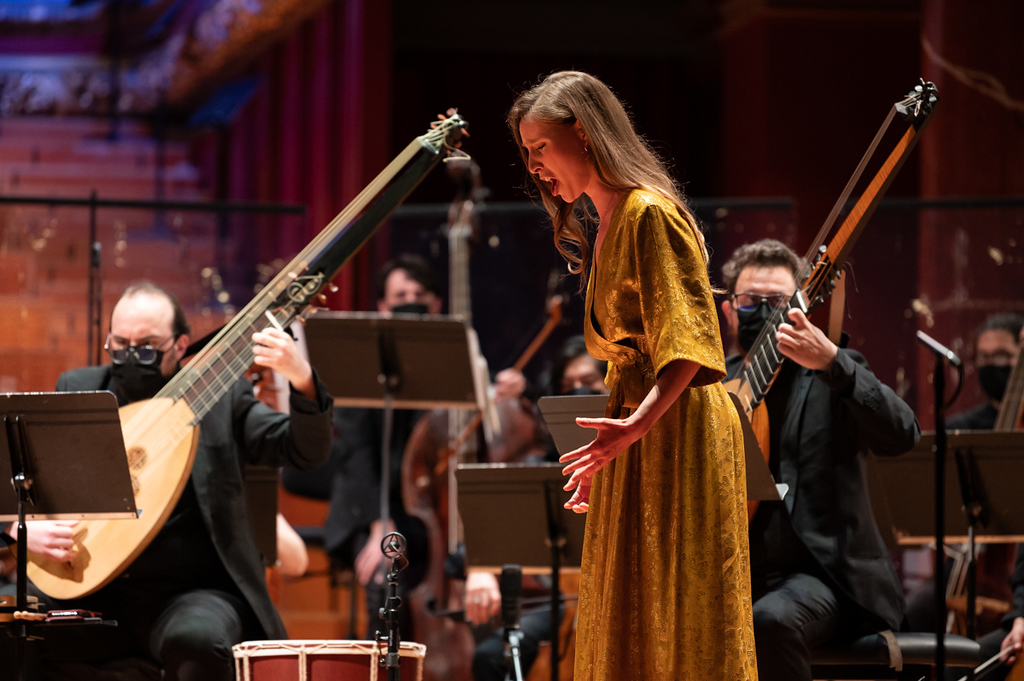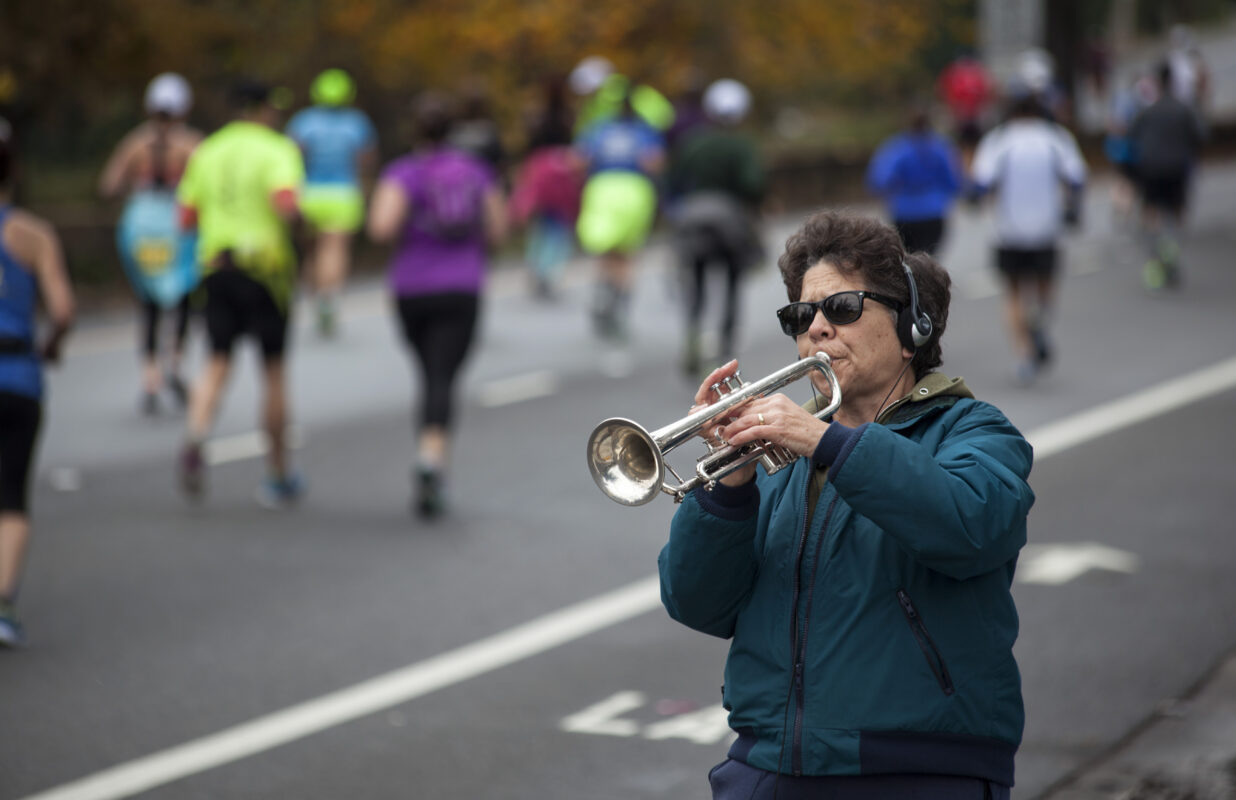Authenticity versus improvisation?
Organized by the University of Bern and the Bern University of the Arts (HKB) on May 19 and 20, 2017, the interdisciplinary Symposium Authenticity versus Improvisation in the Philosophy of Music brought together musicologists and philosophers from England, France, Austria, Italy and the USA.

The symposium took place within the framework of the "Ontologie musikalischer Werke und Analyse der Musikpraxis" project, led by Dale Jaquette - who passed away last year - and Claus Beisbart, from the Institute of Philosophy at the University of Bern, with the collaboration of researchers Annabel Colas, Thomas Gartmann and Marcello Ruta, and with the financial support of the Swiss National Science Foundation (SNSF-CORE).
The symposium sought to question the notions of authenticity and improvisation from both ontological and musicological perspectives. The main topics, such as the authenticity of the work, improvisation, interpretation and performance, were examined by philosophers and musicologists from a variety of schools of thought and using a wide range of methodological approaches: Ted Sider's stage theory, Niklas Luhmann's systems theory, Peter Kivy's categorization of authenticity, Charles Sanders Peirce's type/token relationship, etc.
A wide range of Western musical practice was covered by these studies - from Baroque vocal and liturgical music to Romanticism and the avant-garde, to free jazz and rock. Only the most recent musical practices and electronic music were not the subject of contributions to the symposium - despite the opportunities these genres offer for improvisation.
The colloquium was embellished by an improvisation concert, and enhanced by a workshop led by Jonathan Inniger (double bass), Fabio da Silva (saxophone), Christian Spitzenstaetter (clarinet), Raphael Camenisch, head of the Bachelor's program at the Bern University of the Arts (HKB), and Franziska Baumann, vocal performer, improviser and improvisation teacher at the HKB.
Roger Pouivet: recording as a token of the work
Three key note presentations were given by Roger Pouivet, Julian Dodd and Bastien Gallet. Pouivet (Université de Lorraine, Nancy) presented his work on the authenticity of recording in various fields of music, including rock. The starting point is the widespread idea that the recording is a token of the type (of the work). Pouivet showed that in the rock music practice of the 70s, this relationship was no longer operational, and that the recording was itself a type - an artifact. As an artifact, the recording could be authentic independently of the musical work. According to Pouivet, the real paradigm shift, from an ontological point of view, didn't take place with the recording of a work, but when the recording became the work itself.
Annabel Colas pointed out the ontological problem of improvisation, and also linked it to the fundamental metaphysical distinction between type and token. While the type/token distinction applies perfectly to musical works with multiple performances, improvisation seems to pose a challenge. Indeed, in the case of improvisation, where the performance of a work is at the same time its creation, there seems to be only one performance of the work. Colas has argued that the type/token distinction, however, applies to all musical works, including improvisation. If we consider the parts of musical works, we have types with multiple tokens, even in the case of improvisations. If the type/token distinction applies at the level of parts, then it would be strange to accept that it couldn't apply at the level of the work as a whole.
Julian Dodd: "authenticity of interpretation".
Julian Dodd (University of Manchester) distinguishes between two types of authenticity of the work: on the one hand, authenticity as conformity with the score, and on the other, authenticity as conformity with the work from the point of view of its understanding - what Dodd calls "interpretive authenticity". In his view, both types of authenticity have a constitutive normative value; he rejects the notion of personal authenticity (proposed in Peter Kivy's categorization as a separate type of authenticity). According to Dodd, conformity with the interpreter's personality does not guarantee authentic interpretation. Finally, Dodd points out that there is sometimes a normative conflict between these two types of work authenticity, which performers often resolve to the detriment of faithfulness to the score - in favor, therefore, of a better understanding of the work.
While Dodd's work has focused on the work as object, Caterina Moruzzi (University of Nottingham) has focused on the performance. Applying Ted Sider's Stage Theory to music, Moruzzi sees the musical work as the totality of spatio-temporal stages linked together by a relationship of repetition. This theory allows us to speak of the work as a construction, rather than as an object. This change of system implies that there is no authenticity other than personal authenticity - a form of fidelity to oneself. The other types of Kivy - authenticity of composer's intention, of interpretation, of sound (fidelity to the score) - are no longer important, because each performance is a work (a temporal stage in the work-construction). The same applies to improvisation, which reveals itself as a work in itself.
Contrary to the widespread belief that improvisation, by its very nature, is inauthentic, Alessandro Bertinetto (University of Udine) sees it as a temporal coincidence between creation and performance, which would present an ontologically authentic character if only at the etymological level - authentic as "made by hand", "made by oneself". Bertinetto also criticizes fidelity (Werktreue) to the score (thus rejecting the authenticity of the work proposed by Kivy and Dodd in the sense of conformity with the notation) and introduces the idea of expressive authenticity, which would correspond to being true to - or towards - the moment ("to be true to the moment").
Bertinetto thus draws the same conclusion as Moruzzi, namely that the performance of a work cannot be faithful to it, since it is the work - Bertinetto is thus opposed to Dodd's ideas. The work thus exists only as a performance. The latter would take precedence over the score, conceived as a simple norm (or complex of norms), whose force would depend on context and performing practice. Since the application of the norm transforms it, each work would become an object of transformation in the course of its performance. As a result, there would be no repetition of the work - since each performance is unique, it cannot be reproduced exactly.
This apparent dualism between music as practice and music as work was also discussed by Christoph Haffter (University of Basel). According to him, Georg W. Bertram and Daniel M. Feige insist on the performativity of music and its interactive (and therefore subjective) character, whereas it is the work as (objective) object that Adorno and Anglo-Saxon ontology, represented at the colloquium by Julian Dodd, had examined.
The former focus on the non-repeatable nature of performance and its subjective - and therefore ethical - aspect: for them, improvisation becomes an authentic way of ethical self-understanding. For Bertram, art reflects ordinary activities, and the only authentic modality of action is to recognize oneself in an activity. His reflections raise the following questions: since art as a free activity is incorporated into social life, is it possible to act as we wish, to be what we want? Is freedom possible? For Haffter, authenticity would be a negation of the social dimension, which implies a form of irony, since no individual can exist outside his or her social dimension. In this sense, artistic activity appears as a process of negotiation between the individual and society. Finally, Haffter speaks of the way in which the work surpasses itself, just as it surpasses the artist, leading to a form of alienation. The latter, in turn, is able to bear witness to authenticity.
The question of improvisation in the opposing school of thought, represented in particular by Dodd, does not, according to Haffter, do justice to improvisation. In fact, it is only concerned with authenticity in relation to the work. In Dodd's theory of the work," continues Haffter, "improvisation opens up a space of appearance that suspends the question of authentic self-expression.
Bastien Gallet: the freedom of improvisation
The lecture by Bastien Gallet (Haute Ecole des Arts du Rhin, Strasbourg/Mulhouse) also addressed the subject of freedom in improvisation. Taking into account both philosophical (general) and historical (specific) realities, Gallet examined the notion of freedom in the writings and interviews of musicians such as Cage, Christian G. Wolf, John Stevens and Trevor Watts.
Marcello Ruta argued that the widespread view of improvisation, and specifically of free improvisation, as an event, and therefore as a non-repeatable entity, is insufficient, since this characterization is applicable to any live performance, improvised or not. He also criticized the notion of free improvisation as a performance tending to avoid the production of a normative sound structure, since this second characterization is also applicable to other musical performances, such as Jazz-Standards, which contain elements of improvisation without thereby being free improvisations. Drawing on Niklas Luhmann's notions of code and program, Ruta proposes a definition of improvisation as a non-interpretive, self-programming musical performance, and thus as an autonomous musical performance.
Four musicological conferences
Beyond these ontological considerations, four lectures by musicologists focused on the practice of improvisation itself - covering a period from medieval liturgy to the improvisation practices of the interwar period.
Michael Dodds (University of North Carolina) has used Kivy's schema to theorize the recent phenomenon of renewed organ improvisation practice in the liturgy. Kivy's categories of intentional authenticity, performance authenticity, sonic authenticity (of the listener) and personal authenticity served as the basis for Dodds' thinking. These categories enabled Dodds to establish the schema of a composer-performer-audience trinity encircled by a fourth element - sound. The elements of this trinity merge in the case of improvisation. From this point on, the musicologist arrives at the following schema: performer/listener - listener/composer.
Drawing on the writings of J. J. Quantz, J. A. Hiller and other German sources, Livio Marcaletti (University of Vienna) has argued that considering the score as a definitive version to which it is absolutely necessary to be faithful (authentic) is not only superfluous, but also nonsensical in the case of Baroque music, since it contradicts the composer's will. To understand this thesis, we need to take into account the reality of musical practice in this period: vocal improvisation on written melodies was the rule on which composers relied, writing only sketches for singers. Thus, exact adherence (which can be associated with the idea of authenticity) to the score of a work from this period would be anything but authentic.
Katrin Eggers (University of Basel) and Michael Lehner (Bern University of the Arts) have adopted a pragmatic approach in an attempt to explain how improvisation works from the improviser's point of view. Following a historical perspective, the researchers compared sonata and fantasy form: insofar as the influence of improvisation on sonata form is relatively obvious, Lehner and Eggers examined the question of the reverse influence, namely that of sonata form on improvisational practices.
If improvisation was always a habitual, almost imperative practice, and a prerequisite to the compositional act, it seems to have disappeared in the early 20th century. Andrew Wilson (University of Basel) presented his work on the practice of improvisation in this period. He showed that, contrary to what one might think, a significant improvisational practice was taking place at the very time of modernism, whose ideals are nevertheless the mechanization and dehumanization of art. Wilson then traced the path of the precursors of the aleatoric approach, using examples such as Erwin Schulhoff's Optimistische Komposition (1936) and Otto Lueming's score Part IX - trio for flute, violin and piano.
Conclusion
What is the essence of improvisation? Are the work and the improvisation abstract, nominal, concrete or contextual? What links the work to its performance, its score and its improvisation? These questions were left unanswered at the colloquium, so that not all the mystery surrounding the musical work was dispelled. Nevertheless, these meetings offered a very broad vision of the phenomenon of improvisation in the Western tradition. The diverse, often opposing, opinions testified to the complexity of the subject, the multiplicity of approaches capable of examining these issues, and the breadth of areas not yet explored by research.
Despite the title of this symposium, which, perhaps provocatively, contrasts the notion of authenticity with the practice of improvisation, it seems that, through the proposed discussions, we can discern an invitation to approach the phenomenon of improvisation with greater respect. Indeed, the perspectives proposed at this symposium make it possible to move beyond the approaches inherited from the 70s, which offered the possibility of thinking about improvisation only in terms of dichotomous pairs opposing nature and artifice, or primitiveness and intellect. Improvisation now seems to have earned the right to be thought of in terms of authenticity.








